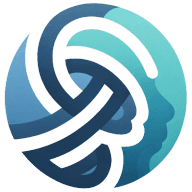How Can Play Be Used in Psychotherapy?
Delving into the therapeutic power of play, we asked top mental health professionals about its application in psychotherapy. From a Clinical Director's perspective on play as a means of expression to an MD in Psychiatry's view on its versatility as a therapeutic tool, here are four expert insights.
- Play as a Means of Expression
- Teaching Skills Through Play
- Fantasy Play for Real-Life Practice
- Play: A Versatile Therapeutic Tool
Play as a Means of Expression
Play can be used as a means of expression for clients of all ages, though it is more commonly used with children. Often, painful experiences, memories, and/or emotions are held in the brain and body in a more complex manner than language alone can describe. This is especially true of trauma histories that occurred prior to the use of language. Play activities, whether through toys, art, music, humor, drama, or bodily movement, allow for the expression of self in ways beyond (or even without) words. Individuals are able to express feelings of aggression, anger, and fear or try out new ways of being without it being tied directly to their sense of self (because it's play and can be 'pretend'). Therapists are able to identify themes arising in the play to explore within the moment through joint play activities or in later sessions.

Teaching Skills Through Play
Play can be used in so many ways in therapy! At our group practice, we work with all ages (starting at 3 and up!), so we often use play in our sessions with younger children to help teach concepts, process emotions, and teach emotional regulation or relationship skills in the manner that kids learn—through play! However, the cool thing about having a practice with play therapy tools readily available is that we often have found that our teens and even young adults enjoy using these activities to help them connect as well. Often, teens struggle with discussing challenging things while sitting face to face with their therapist. Utilizing games and sitting side by side on the floor is a great way to help them connect and share more vulnerable parts.
Additionally, using board games or card games are a great way to teach kids flexibility, problem-solving, impulse control, among other executive functioning skills. In this generation of excessive screen time (which does not teach these things!), games are incredibly helpful at supporting development. For this reason, I encourage parents to also utilize games with their kids consistently!

Fantasy Play for Real-Life Practice
Play is a great space where you can try whatever you want within the confines of a fantasy situation. You are able to design the circumstances and design the reactions that you want. The more you are able to practice it in play, the easier it will be to use in real life.
Play: A Versatile Therapeutic Tool
Often associated with childhood, play is a powerful therapeutic tool across age groups. It fosters emotional expression, builds rapport, processes trauma, develops coping mechanisms, and explores relationships. For instance, a child struggling with anger might act aggressively in play, revealing underlying emotions. Playful activities create a safe and trusting environment, easing clients into therapy. Reenacting traumatic events in play helps process emotions and gain control over the past. Play teaches problem-solving and emotional regulation, providing tools for handling challenges. Playful interactions offer insights into relationships, and group play cultivates social skills. In conclusion, play is a versatile tool for exploring, understanding, and addressing emotional challenges in psychotherapy.


